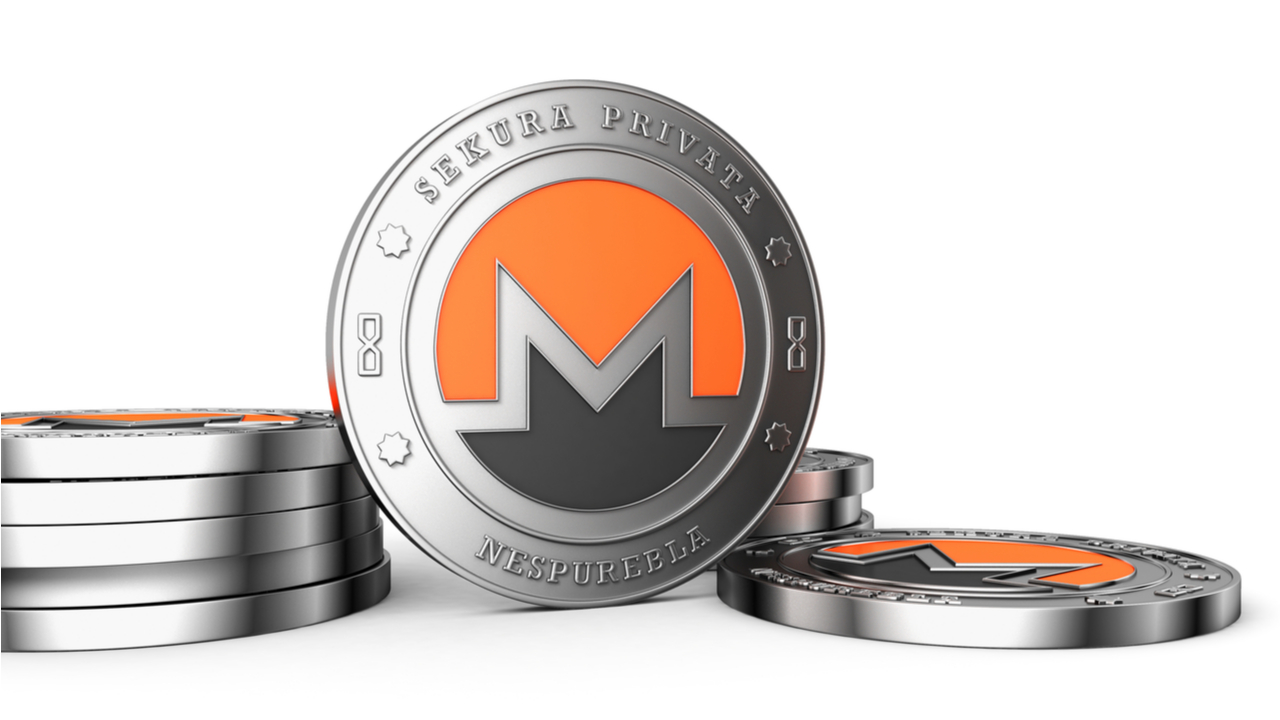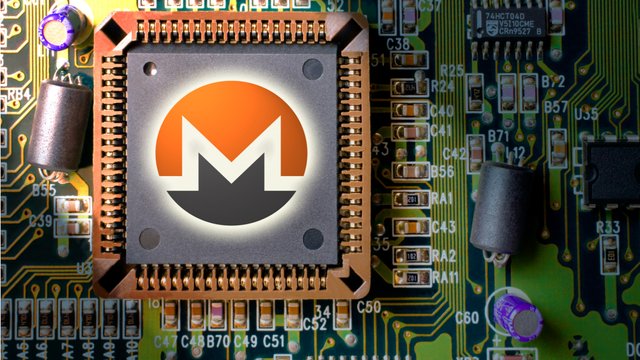The Blockchain Handbook - Chapter 9: Monero (XMR)
Once dubbed the "drug dealer's cryptocurrency of choice," Monero was created back in 2014, built on the CryptoNote protocol described by pseudonymous author Nicolas van Saberhagen in 2013. It has a special focus on privacy and decentralization, which has made this cryptocurrency attractive for less-than-scrupulous actors. Monero's blockchain eschews transparency, hiding the addresses of its users and shielding their transaction details. Those looking to evade the eyes of law enforcement favor Monero's emphasis on secrecy, and even North Korea has "taken a liking" to the world's 13th most-valuable cryptocurrency, according to CNBC.

Anonymity isn't the only key feature users flock to Monero to enjoy. The platform also embraces an egalitarian philosophy, believing "all people are equal and deserve equal opportunities." To that end, its founders kept no stake for themselves, preferring to bank on "contributions and community support to further develop the virtual currency." Currently, Monero has a market cap of $5,050,191,471, about 469,644 BTC. Thanks to a 2018 surge in value, Monero is worth about $321.02, with a 24-hour volume around $130,859,000 and circulating supply of 15,731,557 XMR.
Monero: Competition, Pros, and Cons
Monero lays all its cards out on the table via their website, where they point out that popular cryptocurrencies like Ethereum and Bitcoin have transparent blockchains, and that the addresses of users could potentially be linked to real-world identities. Monero claims to offer an alternative:
"Monero is a secure, private, and untraceable cryptocurrency. It is open-source and accessible to all. With Monero, you are your own bank. Only you control and are responsible for your funds. Your accounts and transactions are kept private from prying eyes."
Monero says they differentiate themselves from other cryptocurrencies in four main aspects, being secure, private, untraceable, and fungible. They add that their grassroots nature -- being developed by a team of decentralized developers from across the world instead of a corporation -- shields them from the threat of any one country being able to shut them down, or the legalities of a particular region hampering their progress. Though similar to cryptocurrencies like Bitcoin in the fact that they are mined, Monero says it differentiates itself several key areas.
The most notable, perhaps, is their hallowed dedication to privacy. Bitcoin's platform makes an attempt at disguising identities using pseudonyms that are randomly generated, but users' Bitcoin addresses and transactions are registered on the blockchain and publicly accessible. With some work, a third party could link multiple transactions to the same address, potentially revealing the identity of the user. Furthermore, the Bitcoin spent on specific activities can be traced back to that hypothetical user, putting them at risk for suspension or account closure should they be found engaging in activities others deem sordid.
Instead of the limited privacy system Bitcoin employs, Monero uses a combination of ring signatures, ring confidential transactions, and stealth addresses to "obfuscate the origins, amounts, and destinations of all transactions." Those ring signatures ensure make it possible to makes it "computationally infeasible to determine which of the group members' keys was used to produce the signature." The confidential transactions allow for "hidden amounts, origins and destinations of transactions." Finally, the stealth addresses require senders to "create random one-time addresses for every transaction on behalf of the recipient."
In combination, these facets allow for plausible deniability on each transaction, creating what Monero sees as its ultimate advantage -- fungibility:
"Fungibility is an advantage Monero has over Bitcoin and almost every other cryptocurrency, due to the privacy inherent in the Monero blockchain and the permanently traceable nature of the Bitcoin blockchain."
Monero asserts that a lack of fungibility is the cause for some organizations refusing to accept specific units of other cryptocurrencies that may, at one point, have been used for illegal purposes. Since Monero is private by default, units "cannot be blacklisted by vendors or exchanges due to their association in previous transactions."
Which is also where the criticisms of Monero come into play. According to Investopedia:
"The non-traceability and privacy features of Monero allow them to be used for disreputable purposes and at questionable marketplaces, including those like drugs and gambling. Markets on the dark web, like AlphaBay and Oasis, have seen an increased use of Monero."
Whether that's a feature or a drawback, though, lies mostly within personal perspective.

The Uses of Monero
Much like Bitcoin, Monero's worth lies in its ability to be used as electronic cash, allowing for "fast, inexpensive payments to and from anywhere in the world." It separates itself from similar currencies in this regard, though, by shielding user identities to the best of their abilities. They also claim to do away with the "capital controls" that restrict the flow of other currencies, making Monero ideal for areas experiencing economic instability.
The Future for Monero
Monero seeks to distinguish itself as the cryptocurrency of choice for users in the open and decentralized future of the world's economy. To that end, they seek to further improve their security capabilities by implementing Kovri. The feature is still in development, but upon arrival, Monero claims, users will be protected from node partitioning attacks, metadata leakage, and other threats to their privacy.
Sources:
- https://coinmarketcap.com/currencies/monero/
- https://blockgeeks.com/guides/monero/
- https://getmonero.org/
- https://getmonero.org/get-started/what-is-monero/
- https://getmonero.org/resources/moneropedia/ringsignatures.html
- https://getmonero.org/resources/moneropedia/ringCT.html
- https://getmonero.org/resources/moneropedia/stealthaddress.html
- https://getmonero.org/resources/moneropedia/fungibility.html
- https://www.coindesk.com/what-to-know-before-trading-monero/
- https://medium.com/@linda.xie/a-beginners-guide-to-monero-7a5df2c50ed9
- https://www.investopedia.com/tech/introduction-monero-xmr/